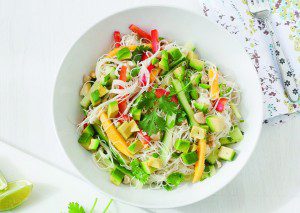| Online: | |
| Visits: | |
| Stories: |

| Story Views | |
| Now: | |
| Last Hour: | |
| Last 24 Hours: | |
| Total: | |
Common Vegan Dietary Deficiencies, and What You Can Do To Avoid Them
Guest Writer for Wake Up World
In terms of health, a vegetarian diet can be quite high in certain nutrients and low in saturated fat and cholesterol. A study 2009 published in The American Journal of Clinical Nutrition suggests a vegan diet could actually be the best when it comes to lowering heart disease and blood pressure. [1] But as compared to other vegetarians, vegans (or strict vegetarians) choose to avoid all animal products — for example, eggs and dairy — which means that they can also have deficiencies in certain nutrients that must be made up with supplements or through other dietary means.
Common Vegan Deficiencies
The dangers of the vegan diet are few and far between and, I believe, are greatly outweighed by the widely-acknowledged benefits. Let’s go over 5 major nutritional problems you could face from a vegan diet, and what you can do to avoid them.
1. Vitamin A Deficiency
While you’ll only find pre-formed vitamin A in animal products, there are certain compounds — you’ve likely already heard of one, beta-carotene — the body can convert into the vitamin. Because of its role in good vision (night blindness is one of the first signs of a deficiency), immune system health, and cell growth, making sure you get enough is key. [2][3] For vegans, there are quite a few vegetable options for getting the Vitamin A you need, but keep in mind, a poorly balanced vegan diet could lead to not getting enough of the vitamin.
2. Lack of Vitamin B12
If you’re not getting enough B12, you could develop anemia or damage to your brain and nervous system. For vegans, getting enough becomes a little tricky since their only reliable sources are fortified foods and supplements. But even with just enough to prevent the major issues mentioned above, studies suggest too little could also lead to pregnancy complications.[4][5]
3. Low Calcium Intake
Many vegans typically only get about 400-600 mg of calcium each day compared to the U.S. recommendations of 1,000 mg each day. While recommendations to increase your milk consumption for your calcium is very outdated, you still need to incorporate as many foods as you can to get enough calcium.
I f you’re eating plenty of green leafy vegetables, like kale, spinach, and mustard greens, you’ll be getting enough calcium. Supplementing with calcium can be helpful, but watch out – you want to go for a highly-absorbable option, like calcium orotate, instead of using calcium carbonate or citrate.
f you’re eating plenty of green leafy vegetables, like kale, spinach, and mustard greens, you’ll be getting enough calcium. Supplementing with calcium can be helpful, but watch out – you want to go for a highly-absorbable option, like calcium orotate, instead of using calcium carbonate or citrate.
4. Vitamin D3 Insufficiency
Research suggests Vitamin D, which is necessary for calcium absorption, is also just as important in preventing osteoporosis. [6] Most vegans won’t get any of this vitamin from natural food sources, so supplementing with vitamin D3 – make sure it’s vitamin D3 and not vitamin D2 – could be crucial for bone health.
Previous articles by Dr. Group:
- The 9 Best Fermented Foods for Your Gut
- 14 Foods that Cleanse the Liver
- How Turmeric Keeps You Looking Young
- 7 Toxins Harming Your Brain Right Now
- Top 5 Foods for the Pineal Gland
- 6 Things You Must Know About Colloidal Silver
- The Importance of a Kidney Cleansing Diet
- The 9 Best Herbs for Lung Cleansing and Respiratory Support
- 7 Best Foods to Support Kidney Function
- Lung Cleansing With Peppermint Oil
- 10 Best Herbs for Boosting Female Sex Drive
-
Follow Wake Up World On…
[FACEBOOK]: http://www.facebook.com/joinwakeupworld (An interactive community of over 2,600,000)
[PINTEREST]: http://pinterest.com/wakeupword/
[TWITTER]: http://twitter.com/joinwakeupworld
[YOUTUBE]: http://www.youtube.com/joinwakeupworld
[GOOGLE PLUS]: https://plus.google.com/112452105795129310867/posts
[WEBSITE]: http://wakeup-world.com




